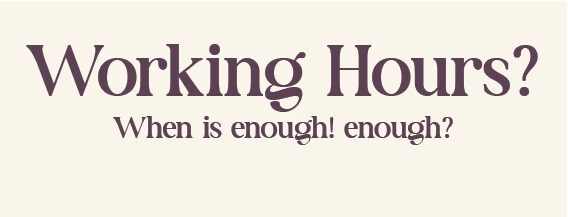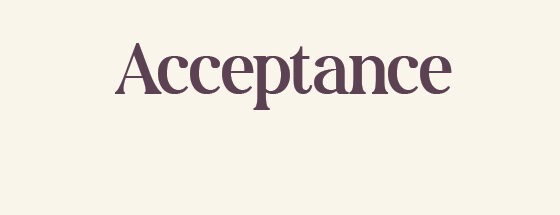Introverts Vs Extroverts-during Covid
So over the next up and coming weeks due to the loosening of lockdown rules and the swarm of reclaiming the office space like bees to a hive protecting its Queen. After nearly a year of lockdown with the year 2020 was very unpredictable at best.
Mostly workers in offices been isolated at home stuck on furlough, free money it seems at first. However this can be discounted if you’re unlucky too. A friend of mine was getting 50% pay for same amount of work, then made redundant at the click of a finger.
Issues for people
Issues include dealing with the frustrating zoom meetings and internet outage.
Pressures of job security and uncertainty.
Families with working parents, including the pressure of children being home tutored and general lack of mobility.
Socialisation issues between home, work and social activities which has seen a strain on the following
- marriages
- relationships
- friendships
Thus creating a divide and conquer ideology not needed plus a rising issue in race related incidents and protests.
With a general fear created by the mainstream media, governments convoluted instructions outside your house about Covid stuck in by tunnel vision. The spread of the original virus and its new variants. The push of a vaccine with varying degrees of absolute scientific trust with dubious Pharmaceutical ethics records. Then the juxtaposition mistrusting social media sphere.
Introverts Vs Extroverts
Something many have not considered and neglected for the most part in recent times, is the long-term damage of socialisation ideals.
How fear mongering by the media will affect individuals, families, companies, small businesses who have seen costs skyrocket and productivity slow down-to need of demand.
Then the knock-on effect whether it affects or seems necessary to have expensive office space, rented buildings, which may not work for all.
Let alone the way companies will have tried and claw back money lost during the pandemic.
The future impact remains to be seen, as we hear of many established businesses folding due to not taking in digital opportunities.
Especially outside the public retail sector, the professional sector will have been effected some what more?
Now does working from home in the corporate or self-employed environment become not a one day a week activity. Seldom to a complete 360 switch around to being rarely in an office space or out meeting people for networking.
Introverts: Loneliness
Introverts may be excellent at working solitary and revel in being a home bud, not socialising but does this cause mental damage long term.
Loneliness can be killer especially if the depression statistics of men between aged 30 to 45 show as the highest for suicide rates in the UK for example.
Those introverts will appeal to aspects mentioned in Myers Briggs Type Indicator, the Enneagram.
The DISC profile or one of the dozens of other personality assessments out there, it’s no secret that learning more about your personality is a powerful tool.
Now if you have effective managers or the self-employed disciplined in management of time they will be wary of which colleagues appeal to the Extrovert or Introvert prototype.
Delegate the roles out properly but the problem is with this, would it cause an unfairness culture be created.
We already know there is many complaints over the previous years of women not being promoted into management.
Is it slowly improving in larger companies and let alone women paid the same rate as men, and then we can go into race, class as other disadvantages.
So let’s break down Introverts Vs Extroverts this is a guide not gospel truth for everyone but you get the jist of it.
This below is paraphrased from a cnet.com article about the differences between Extrovert and Introvert.
What’s the difference between an extrovert and an introvert?
“When I think about the words introvert and extrovert, I think about the ways in which people relate to themselves, and the world around them,” Chelsea Connors, MS, NCC, LPC-A, Board Certified Coach and therapist said. She added that the biggest difference between the two is in how each prefers to spend their time.
You may be an introvert if:
- You enjoy spending time alone. Ideal in lockdown but the frightening aspect of going to a crowded over suspect office space can be very daunting, its like teaching shy people to come out of their shell.
- You prefer quality time with one or two people over spending time with bigger groups of friends. Again small team management which is easy to work online then renting out larger spaces of offices, so downsizing suits these people if a company makes grander plans of cuts.
- You need alone time to rest and recharge after a busy workday or period of activity. So this aspect will have been useful to those working at home.
- You can get lost in your thoughts easily and need time to process and think through most things
You may be an extrovert if:
- You prefer spending your time around other people and dislike being alone. So these people will welcome being around an office and may find creativity easier this way.
- You like crowds, parties and other gatherings with lots of new people. The actual nightmare to an introvert generally.
- You need quality time with others to help you recharge. Now this works in new initiatives for companies and where to go forward for the future.
- You’re outgoing, talkative and like being the centre of attention. A problem if stuck at home as previously with lockdown which may leave these people to look elsewhere for work.
“thoughts and recharge more in solitude. Extroverts can be just the opposite. Extroverts are often more outspoken, outgoing and absolutely love being around other people. That’s what really fills them up,” Connors said.
You can also consider how you feel after socializing to help you decipher if you’re more introverted or extroverted. “We often see that extroverts feel refuelled and filled up after being with a crowd and connecting with more people, while introverts may feel drained by that same experience,” Connors said.
So with what Connors has stated managers and owners have huge dilemmas with companies and colleagues, the issue is less jobs are available so whereas before or during the lockdown people may have reconsidered options, instead they maybe forced to be living in fear of leaving a job to be not employed or at the mercy of downsizing.
Introverts suit the working from home ideal, extroverts generally will struggle with the thought.
Now with patience, discussion and where we place our efforts we may all have to look at new opportunities, or be happy where we are. Either way it could mean for many younger people moving countries to competitive markets especially in the growth of Asia and taking opportunities while they are around.
But the fear instilled in us by the media, yes I blame them for many mistruths is getting stuck somewhere and that could be more likely detrimental to growth not only of individuals but companies themselves.

